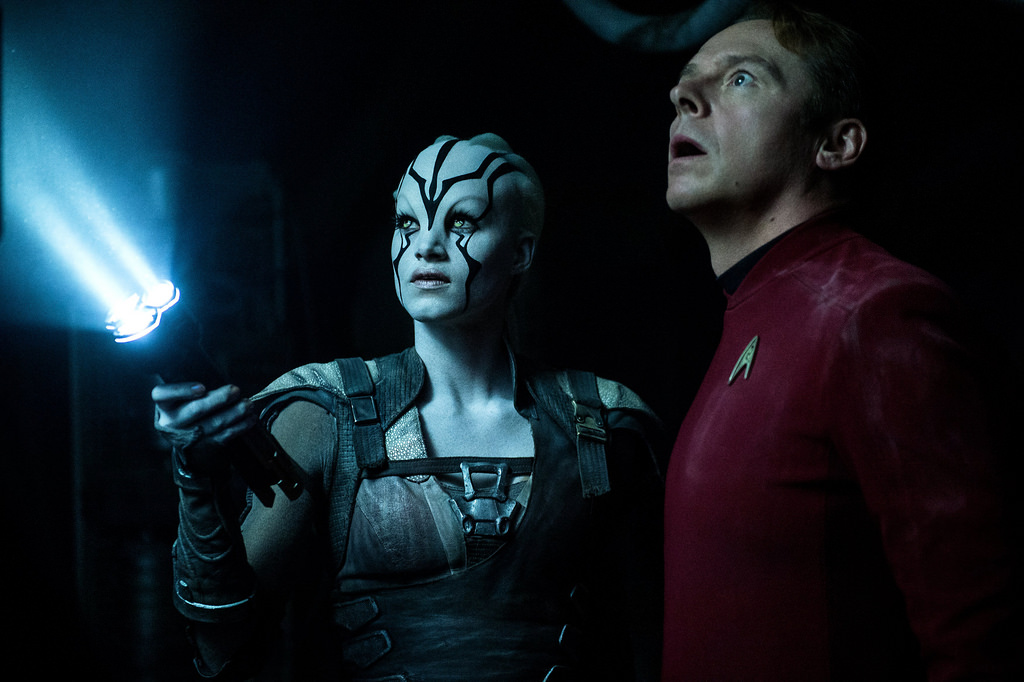With Gene Roddenberry’s acclaimed science fiction series Star Trek celebrating its 50th anniversary this year, what better time to release another film installment for these celebrated characters?
Ever since the franchise reboot in 2009 directed by J.J. Abrams, the latest Star Trek movies have been a hit with both critics and audiences, but has divided the Trekkie fanbase with what they view as questionable creativity choices, such as the creation of a new timeline to justify the reboot, and how Abrams essentially remade Wrath of Khan with Star Trek: Into Darkness.
People weren’t too sure of what to think when it was announced that Fast and Furious director Justin Lin was helmed to direct the third installment of the reboot series due to Abrams focusing his efforts on the new Star Wars trilogy, and their optimism was lowered due to the unfortunate deaths of actors Leonard Nimoy and Anton Yelchin.
However, despite the heightened skepticism, the third Star Trek Beyond succeeded in a number of areas, making it one of the few 2016 summer blockbusters worth checking out.
In the middle of their five year exploratory mission, the crew of the USS Enterprise is sent on a rescue mission to Altamid, a planet within an uncharted nebula.
Because it can’t be a Star Trek movie without the ship crashing, the Enterprise is ambushed when it comes in proximity to the Altamid, and the crew is separated on the unknown planet. They discover the force behind the attack is a mutated alien named Krall, who has plans to destroy the Federation with an ancient bioweapon.
They receive some much needed assistance in reuniting and leaving the planet from an alien scavenger named Jaylah. During their time there, Kirk and Spock question whether they should keep their places on the Enterprise.
Out of the three entries in the Star Trek reboot movies, Beyond is guaranteed to satisfy old and new fans. Unlike the last two movies, it remembers that Star Trek is an ensemble piece, giving nearly every member of the crew a moment to shine rather than focusing only on Kirk and Spock.
Splitting up the Enterprise into different pairings was a great way to highlight more of the supporting cast and demonstrate the chemistry the actors had with each other, with Zachary Quinto’s Spock and Karl Urban’s Dr. McCoy being my particular favorite. The new character, Jaylah, was also a fun addition to the ride in terms of design and character, coming across as a Rey-like figure without being too good at everything.
The writing duties for this installment were handled by Doug Jung and Scotty himself, Simon Pegg, giving the series a much needed comedic boost after the overly edgy tones of Into Darkness (even if the world “dark” was in the name).
The only grim element was that Leonard Nimoy’s death was written into the film, but rather than feel like another sad reminder, it actually plays an important role with Spock’s character without feeling too forced, giving Quinto another chance to show that he’s a worthy successor to the Vulcan mantle.
Aside from that, it has entertaining and creative action with the technology and vehicles present in this universe, and there’s no more suffering from J.J.’s infamous lens flares.
The primary reason why Star Trek Beyond succeeded where the other didn’t was that it acted as its own product. The first Star Trek had to be an origin story for characters a number of people knew and tried to justify why they rebooted the universe, while the second was a remake.
It essentially feels like an extended episode of the original series, with even some morals thrown in for good measure.
Star Trek Beyond is one of those very few instances where the third is better than the first two. It has fun character dynamics, acting, action, and serves as a good reminder of why this series has endured for 50 years and will continue to live long and prosper. For those who unfortunately can’t do the same, it’s a worthy swan song.
